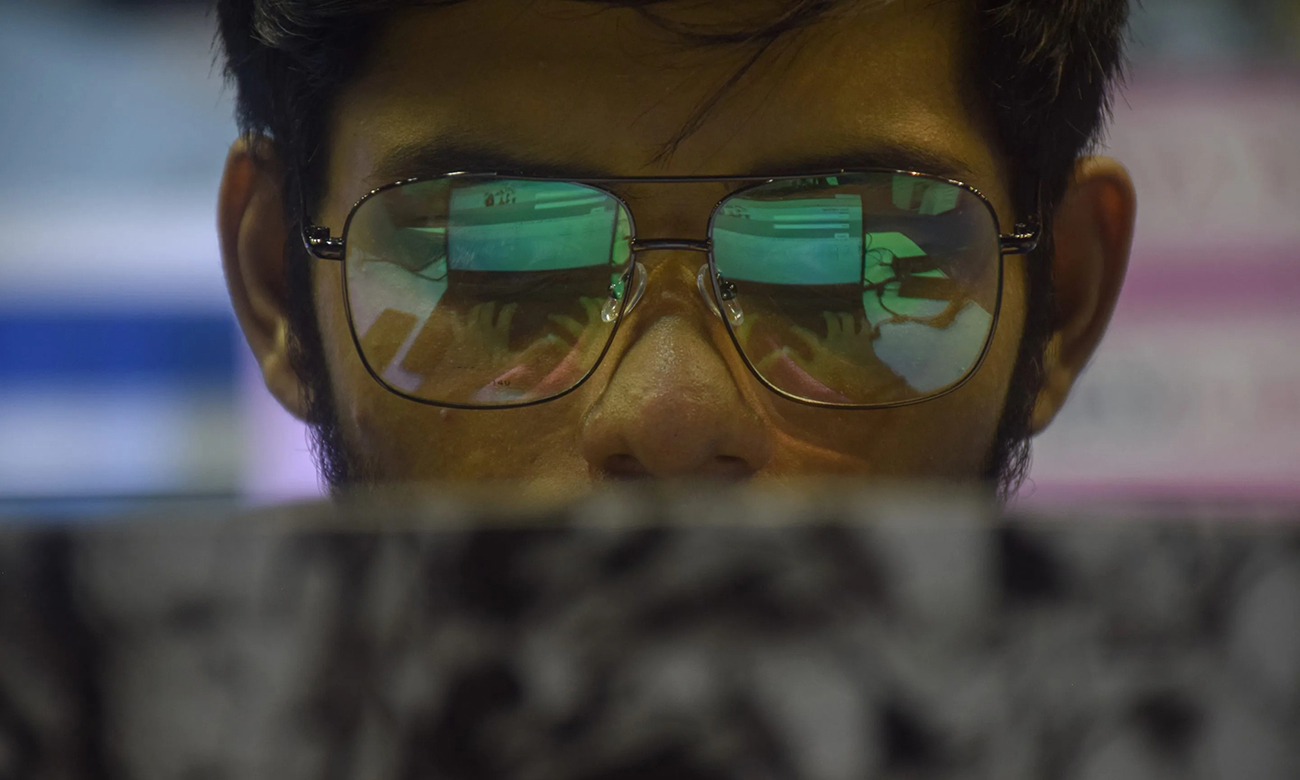
如果20年前,有人跟我說我要負(fù)責(zé)保證食品雜貨店庫存充足,公共交通按時(shí)刻表正常運(yùn)行,加油站供應(yīng)充足,我會(huì)很疑惑自己從事的到底是什么職業(yè)。
20年前,我所從事的是與今天一樣的工作,是一名數(shù)字取證和網(wǎng)絡(luò)安全事件響應(yīng)人員。當(dāng)時(shí),我的主要工作是保護(hù)企業(yè)和消費(fèi)者的數(shù)據(jù),避免它們落入壞人手中。沒有人擔(dān)心物理世界受到的影響。但現(xiàn)在,這些不同體驗(yàn)因?yàn)橐环N共同的特征相互關(guān)聯(lián):它們的運(yùn)行都依賴(數(shù)字和物理)網(wǎng)絡(luò)連接。而20年前盜竊信用卡數(shù)據(jù)的網(wǎng)絡(luò)犯罪分子,正在對這些網(wǎng)絡(luò)發(fā)起攻擊。
網(wǎng)絡(luò)攻擊帶來的風(fēng)險(xiǎn)發(fā)生了巨大變化。多年來,從在美國空軍服役到為電信業(yè)巨頭的客戶服務(wù),再到現(xiàn)在領(lǐng)導(dǎo)和培訓(xùn)下一代網(wǎng)絡(luò)一線響應(yīng)人員,我曾阻止了數(shù)以千計(jì)的網(wǎng)絡(luò)攻擊。我想說的是,這些變化已經(jīng)并將繼續(xù)影響所有人,影響的規(guī)模之大可能超出我們的想象。
物理世界和數(shù)字世界正在逐漸融合,而網(wǎng)絡(luò)威脅現(xiàn)在也蔓延到了“現(xiàn)實(shí)世界”。我們的任務(wù)不只是防止數(shù)據(jù)落入壞人手中,或者信用卡數(shù)據(jù)被盜。現(xiàn)在的網(wǎng)絡(luò)攻擊都經(jīng)過了精心策劃,目的是實(shí)現(xiàn)物理破壞和運(yùn)行停機(jī),通常針對全球重要的服務(wù):據(jù)美國聯(lián)邦調(diào)查局(FBI)披露,2021年,16個(gè)關(guān)鍵基礎(chǔ)設(shè)施行業(yè)中,有14個(gè)遭到了勒索軟件攻擊。
攻擊就發(fā)生在我們眼前,只是我們并沒有“切身體會(huì)”。 2022年,一次勒索軟件攻擊導(dǎo)致德國數(shù)百座加油站停止服務(wù)。英國最近挫敗了一次對其交通樞紐的攻擊。在戰(zhàn)爭時(shí)期,網(wǎng)絡(luò)越來越多地變成了一種主要工具,盡管我們尚未看到它充分展現(xiàn)威力。
隨著威脅日益升級(jí),人們對網(wǎng)絡(luò)安全防護(hù)人員提出的要求也越來越高。現(xiàn)在,如果不能防御網(wǎng)絡(luò)攻擊,會(huì)對經(jīng)濟(jì)產(chǎn)生嚴(yán)重影響,妨礙普通市民使用重要的日常服務(wù)。
風(fēng)險(xiǎn)不止于此……
網(wǎng)絡(luò)事件的影響會(huì)迅速擴(kuò)散,但令人擔(dān)憂的是,全球掌握網(wǎng)絡(luò)防御技能的人才卻依舊嚴(yán)重不足。最近一項(xiàng)全球調(diào)查發(fā)現(xiàn),68%的網(wǎng)絡(luò)事件響應(yīng)人員普遍要同時(shí)應(yīng)對兩個(gè)甚至更多攻擊。許多公司一旦遭遇網(wǎng)絡(luò)危機(jī),不可避免會(huì)面臨無人可用的窘境。
簡而言之,事件響應(yīng)人員的數(shù)量嚴(yán)重不足。
盡管如此,他們?nèi)匀粓?jiān)守在一線。數(shù)據(jù)顯示,他們依舊承受了巨大的精神壓力,通常不堪重負(fù)。事實(shí)上,勒索軟件這種破壞性攻擊加劇了網(wǎng)絡(luò)一線響應(yīng)人員的壓力和心理素質(zhì)要求。許多人由于所從事的應(yīng)對網(wǎng)絡(luò)安全威脅的工作性質(zhì),必須尋求心理健康協(xié)助。
全世界越來越依賴這些事件響應(yīng)人員,只是我們還沒有充分意識(shí)到他們的重要性。然而,如果我們不現(xiàn)在行動(dòng)起來支持他們,并創(chuàng)建一個(gè)人才庫,以滿足未來必然更大的網(wǎng)絡(luò)需求,當(dāng)新的數(shù)字陣地遭遇攻擊的時(shí)候,我們可能會(huì)措手不及。
我們必須將事件響應(yīng)作為一種數(shù)字交匯的應(yīng)急服務(wù),并承認(rèn)網(wǎng)絡(luò)響應(yīng)人員所承受的巨大壓力和高壓的工作環(huán)境。雖然我們看到他們的服務(wù)意識(shí)比這些挑戰(zhàn)更重要,但公司以及網(wǎng)絡(luò)安全行業(yè)必須執(zhí)行可持續(xù)的支持結(jié)構(gòu),以避免事件響應(yīng)人員出現(xiàn)職業(yè)倦怠。首先在為防御網(wǎng)絡(luò)安全做準(zhǔn)備,以及圍繞資源和條件進(jìn)行規(guī)劃時(shí),要將事件響應(yīng)人員和他們面臨的挑戰(zhàn)考慮在內(nèi)。
政府和私人行業(yè)必須加大對公眾的教育,宣傳網(wǎng)絡(luò)安全的重要性,以及事件響應(yīng)人員的關(guān)鍵使命。為了培養(yǎng)下一代網(wǎng)絡(luò)安全一線防御人員,人們必須知道這個(gè)職業(yè)路徑的存在。我們看到幫助人們規(guī)劃網(wǎng)絡(luò)職業(yè)的項(xiàng)目越來越多,例如DHS CISA的“在網(wǎng)絡(luò)中看到自己”計(jì)劃。這需要各方共同努力,將該領(lǐng)域內(nèi)不同學(xué)科的教育與網(wǎng)絡(luò)安全培訓(xùn)路徑相結(jié)合。例如,IBM正在與20所傳統(tǒng)黑人高校合作,幫助他們建立網(wǎng)絡(luò)安全領(lǐng)導(dǎo)力中心(Cybersecurity Leadership Centers)。
無論是在幕后打擊網(wǎng)絡(luò)犯罪分子,拔掉服務(wù)器機(jī)房的插座以防止攻擊不可控的傳播,還是在作戰(zhàn)室出謀劃策,事件響應(yīng)人員都在夜以繼日地,默默守護(hù)著我們的現(xiàn)代生活方式。問題是,我們是否為他們提供了足夠多的支持?(財(cái)富中文網(wǎng))
本文作者勞倫斯·戴恩為IBM X-Force部門全球網(wǎng)絡(luò)事件響應(yīng)負(fù)責(zé)人。
Fortune.com上發(fā)表的評(píng)論文章中表達(dá)的觀點(diǎn),僅代表作者本人的觀點(diǎn),并不代表《財(cái)富》雜志的觀點(diǎn)和信仰。
翻譯:劉進(jìn)龍
審校:汪皓
如果20年前,有人跟我說我要負(fù)責(zé)保證食品雜貨店庫存充足,公共交通按時(shí)刻表正常運(yùn)行,加油站供應(yīng)充足,我會(huì)很疑惑自己從事的到底是什么職業(yè)。
20年前,我所從事的是與今天一樣的工作,是一名數(shù)字取證和網(wǎng)絡(luò)安全事件響應(yīng)人員。當(dāng)時(shí),我的主要工作是保護(hù)企業(yè)和消費(fèi)者的數(shù)據(jù),避免它們落入壞人手中。沒有人擔(dān)心物理世界受到的影響。但現(xiàn)在,這些不同體驗(yàn)因?yàn)橐环N共同的特征相互關(guān)聯(lián):它們的運(yùn)行都依賴(數(shù)字和物理)網(wǎng)絡(luò)連接。而20年前盜竊信用卡數(shù)據(jù)的網(wǎng)絡(luò)犯罪分子,正在對這些網(wǎng)絡(luò)發(fā)起攻擊。
網(wǎng)絡(luò)攻擊帶來的風(fēng)險(xiǎn)發(fā)生了巨大變化。多年來,從在美國空軍服役到為電信業(yè)巨頭的客戶服務(wù),再到現(xiàn)在領(lǐng)導(dǎo)和培訓(xùn)下一代網(wǎng)絡(luò)一線響應(yīng)人員,我曾阻止了數(shù)以千計(jì)的網(wǎng)絡(luò)攻擊。我想說的是,這些變化已經(jīng)并將繼續(xù)影響所有人,影響的規(guī)模之大可能超出我們的想象。
物理世界和數(shù)字世界正在逐漸融合,而網(wǎng)絡(luò)威脅現(xiàn)在也蔓延到了“現(xiàn)實(shí)世界”。我們的任務(wù)不只是防止數(shù)據(jù)落入壞人手中,或者信用卡數(shù)據(jù)被盜。現(xiàn)在的網(wǎng)絡(luò)攻擊都經(jīng)過了精心策劃,目的是實(shí)現(xiàn)物理破壞和運(yùn)行停機(jī),通常針對全球重要的服務(wù):據(jù)美國聯(lián)邦調(diào)查局(FBI)披露,2021年,16個(gè)關(guān)鍵基礎(chǔ)設(shè)施行業(yè)中,有14個(gè)遭到了勒索軟件攻擊。
攻擊就發(fā)生在我們眼前,只是我們并沒有“切身體會(huì)”。 2022年,一次勒索軟件攻擊導(dǎo)致德國數(shù)百座加油站停止服務(wù)。英國最近挫敗了一次對其交通樞紐的攻擊。在戰(zhàn)爭時(shí)期,網(wǎng)絡(luò)越來越多地變成了一種主要工具,盡管我們尚未看到它充分展現(xiàn)威力。
隨著威脅日益升級(jí),人們對網(wǎng)絡(luò)安全防護(hù)人員提出的要求也越來越高。現(xiàn)在,如果不能防御網(wǎng)絡(luò)攻擊,會(huì)對經(jīng)濟(jì)產(chǎn)生嚴(yán)重影響,妨礙普通市民使用重要的日常服務(wù)。
風(fēng)險(xiǎn)不止于此……
網(wǎng)絡(luò)事件的影響會(huì)迅速擴(kuò)散,但令人擔(dān)憂的是,全球掌握網(wǎng)絡(luò)防御技能的人才卻依舊嚴(yán)重不足。最近一項(xiàng)全球調(diào)查發(fā)現(xiàn),68%的網(wǎng)絡(luò)事件響應(yīng)人員普遍要同時(shí)應(yīng)對兩個(gè)甚至更多攻擊。許多公司一旦遭遇網(wǎng)絡(luò)危機(jī),不可避免會(huì)面臨無人可用的窘境。
簡而言之,事件響應(yīng)人員的數(shù)量嚴(yán)重不足。
盡管如此,他們?nèi)匀粓?jiān)守在一線。數(shù)據(jù)顯示,他們依舊承受了巨大的精神壓力,通常不堪重負(fù)。事實(shí)上,勒索軟件這種破壞性攻擊加劇了網(wǎng)絡(luò)一線響應(yīng)人員的壓力和心理素質(zhì)要求。許多人由于所從事的應(yīng)對網(wǎng)絡(luò)安全威脅的工作性質(zhì),必須尋求心理健康協(xié)助。
全世界越來越依賴這些事件響應(yīng)人員,只是我們還沒有充分意識(shí)到他們的重要性。然而,如果我們不現(xiàn)在行動(dòng)起來支持他們,并創(chuàng)建一個(gè)人才庫,以滿足未來必然更大的網(wǎng)絡(luò)需求,當(dāng)新的數(shù)字陣地遭遇攻擊的時(shí)候,我們可能會(huì)措手不及。
我們必須將事件響應(yīng)作為一種數(shù)字交匯的應(yīng)急服務(wù),并承認(rèn)網(wǎng)絡(luò)響應(yīng)人員所承受的巨大壓力和高壓的工作環(huán)境。雖然我們看到他們的服務(wù)意識(shí)比這些挑戰(zhàn)更重要,但公司以及網(wǎng)絡(luò)安全行業(yè)必須執(zhí)行可持續(xù)的支持結(jié)構(gòu),以避免事件響應(yīng)人員出現(xiàn)職業(yè)倦怠。首先在為防御網(wǎng)絡(luò)安全做準(zhǔn)備,以及圍繞資源和條件進(jìn)行規(guī)劃時(shí),要將事件響應(yīng)人員和他們面臨的挑戰(zhàn)考慮在內(nèi)。
政府和私人行業(yè)必須加大對公眾的教育,宣傳網(wǎng)絡(luò)安全的重要性,以及事件響應(yīng)人員的關(guān)鍵使命。為了培養(yǎng)下一代網(wǎng)絡(luò)安全一線防御人員,人們必須知道這個(gè)職業(yè)路徑的存在。我們看到幫助人們規(guī)劃網(wǎng)絡(luò)職業(yè)的項(xiàng)目越來越多,例如DHS CISA的“在網(wǎng)絡(luò)中看到自己”計(jì)劃。這需要各方共同努力,將該領(lǐng)域內(nèi)不同學(xué)科的教育與網(wǎng)絡(luò)安全培訓(xùn)路徑相結(jié)合。例如,IBM正在與20所傳統(tǒng)黑人高校合作,幫助他們建立網(wǎng)絡(luò)安全領(lǐng)導(dǎo)力中心(Cybersecurity Leadership Centers)。
無論是在幕后打擊網(wǎng)絡(luò)犯罪分子,拔掉服務(wù)器機(jī)房的插座以防止攻擊不可控的傳播,還是在作戰(zhàn)室出謀劃策,事件響應(yīng)人員都在夜以繼日地,默默守護(hù)著我們的現(xiàn)代生活方式。問題是,我們是否為他們提供了足夠多的支持?(財(cái)富中文網(wǎng))
本文作者勞倫斯·戴恩為IBM X-Force部門全球網(wǎng)絡(luò)事件響應(yīng)負(fù)責(zé)人。
Fortune.com上發(fā)表的評(píng)論文章中表達(dá)的觀點(diǎn),僅代表作者本人的觀點(diǎn),并不代表《財(cái)富》雜志的觀點(diǎn)和信仰。
翻譯:劉進(jìn)龍
審校:汪皓
If you had told me 20 years ago that today I’d be charged with making sure that grocery stores remain stocked, public transportation schedules are running, and gas pumps are full, I’d be very confused as to what line of work I ended up in.
All those years ago, I had the same job I do today, as a digital forensic and cybersecurity incident responder. Back then, I focused on keeping corporate and consumer data from falling into bad actors’ hands. Concerns for physical implications were non-existent. Today, there’s a common trait connecting these seemingly disparate experiences to each other: they all rely on (digital and physical) network connections to operate. And those networks are under attack from the same cybercriminals that were stealing credit card data 20 years ago.
The stakes have changed drastically when it comes to cyberattacks. I’ve fended off thousands of cyberattacks over the years, from my service in the United States Air Force to defending clients of telecommunication giants and now leading and training the next generation of cyber frontline responders–and I’m telling you that change has and will continue to impact us all, potentially at a scale we can’t comprehend.
The physical and digital worlds are merging, and cyber threats are now crossing over into the “real world.” It’s no longer just about keeping data from falling into the wrong hands or credit card data being stolen. Cyberattacks today are engineered to achieve physical disruption and operational downtime, usually targeting the world’s critical services: The?FBI revealed that in 2021, 14 of 16 critical infrastructure sectors were attacked with ransomware.
It’s happening before our eyes, it just hasn’t “hit us” yet. In 2022, a ransomware attack resulted in interrupting services at hundreds of gas stations in Germany. The U.K. recently thwarted an attack on its transportation links. Cyber has grown into a staple tool used during warfare, although we have yet to see its full extent materialize.
As threats evolve, so is what’s being asked of those defending against them. Today failing to hold the line against cyberattacks can have a material impact on the economy and access to essential day-to-day services for citizens.
But that’s not the only thing at stake…
As cyber incidents quickly multiply, what’s worrisome is that the men and women with the skills to defend against them are still in very short supply worldwide. A recent global study found that it’s common for 68% of incident responders to have to defend against two or more attacks simultaneously. Inevitably, many businesses are left without manpower in the face of a cyber crisis.
Simply put, incident responders are outnumbered.
Even so, they are still showing up, often overwhelmed, pushing through a considerable mental strain according to the data. In fact, disruptive attacks like ransomware have exacerbated the pressure and psychological demands of cyber frontline responders. Many are seeking out mental health assistance because of the very nature of responding to cyberattacks.
The world is becoming increasingly reliant on these teams, even if it’s still largely unaware of their importance. However, if we do not take measures today to support them as well as create a talent funnel that can meet tomorrow’s inevitably larger cyber needs, we will find ourselves unprepared to defend the new digital front line.
We must recognize the nature of incident response as an emergency service for digital intersections and acknowledge the immense pressure and high stress scenarios cyber responders are constantly up against. While we see their sense of service overriding these challenges, businesses–and the cybersecurity industry itself–must put in place sustainable support structures to avoid incident response burnout. That starts with considering incident responders and–the challenges they face–when preparing for cyberattacks, and planning around those resources and conditions.
Governments and private industry must invest more in educating the public about the material and direct importance of cybersecurity, as well as the critical mission of incident responders. To build up the next generation of cyber frontline defenders, people must know this career path even exists. We’re beginning to see more dedicated efforts to help people envision themselves in cyber, like DHS CISA’s “See yourself in cyber” initiative. This must be a collective undertaking that couples education on the diverse disciplines within the field with pathways to cybersecurity training. For example, IBM is?collaborating with 20 Historically Black Colleges and Universities to help them establish Cybersecurity Leadership Centers.
Whether they’re kicking cybercriminals off networks behind screens, pulling out plugs in server rooms to stop an uncontrollable spread of attacks, or strategizing in war rooms, incident responders are silently defending our modern way of life–day in and day out. The question is, are we doing enough to support them?
Laurance Dine is the global lead of incident response at IBM X-Force.
The opinions expressed in Fortune.com commentary pieces are solely the views of their authors and do not necessarily reflect the opinions and beliefs of Fortune.






